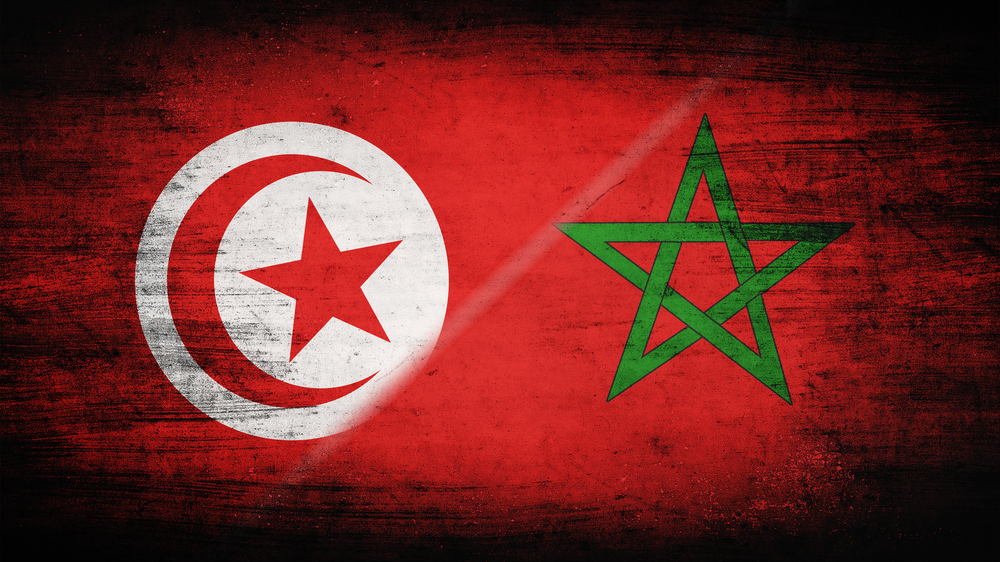Morocco’s government has moved to review the free trade agreement signed with Tunisia in 2004, in the context of the rising economic issues facing the two countries, in part due to the impact of the Covid-19 pandemic. On January 11th, Moroccan prime minister, Aziz Akhannouch, announced the government’s intention to renegotiate the agreement’s terms, and increased customs duties on Tunisian goods such as carpets, household appliances, and stationery by 17.5%. Moreover, negotiations would take place regarding the tax imposed on other goods and products, including textiles, cars and steel bars.
It is noteworthy that both countries recently amended their free trade agreements with Turkey, due to the economic difficulties they are facing. The most important features of these difficulties include:
Growing trade deficits. Both countries suffer from large trade deficits, due to the decline in exports, accompanied by an increase in raw material imports in Tunisia totaling USD 7.8 billion in 2021, and the rise in energy imports in Morocco totaling USD 15 billion. This intensified pressures on both governments.
Growing budget deficits. Tunisia’s budget deficit reached nearly 28% in 2021, prompting Najla Bouden’s government to request foreign loans worth USD 4 billion. Meanwhile the Moroccan budget deficit reached 7.6% of GDP last year but is expected to fall to about 6.2% this year.
Political instability in Tunisia. This exacerbated the severity of economic problems, as it comes in addition to an economic recession brought on by the pandemic. The economy contracted by 8.8%, while domestic public debt rose. The country’s unemployment rate also rose to about 17.4%, and foreign direct investments fell to USD 652 million dollars in 2020. On the other hand, political stability in Morocco has contributed to a recent economic boom, attracting nearly USD 1.8 billion of foreign investments during the same year.
These economic difficulties prompted the Moroccan government to take several measures, including:
Implementing an economic recovery plan. Since its formation, the current Moroccan government has taken several measures, most notably working to activate the Mohammed VI Investment Fund, a major pillar of the government’s economic recovery efforts for the year. The fund comes within the framework of implementing a new development model launched by King Mohammed VI, which sets the country’s social and economic priorities until 2035.
The financial and economic policies adopted by the Akhannouch government have contributed to some recovery for the national economy, including stabilizing inflation at around 1.3%. Phosphate and phosphate derivatives, cars, food, and electronic industry exports also increase in December, with high expectations that the economic growth rate will reach about 6% by the end of 2022.
Signing new economic agreements. The Moroccan government signed on to the Belt and Road initiative with China in early January. The agreement aims to strengthen economic cooperation between Rabat and Beijing, especially in the areas of renewable energy and infrastructure, helping Rabat to enhance its economic capabilities at the African and international levels.
This context explains the Moroccan government’s motivation in reviewing the free trade agreement with Tunisia, as it seeks to achieve the following objectives:
Reciprocity. Morocco applies a policy of reciprocity with the aim of protecting its national economy and enhancing its competitiveness in international trade transactions, protecting its economic interests. Rabat has also taken a decision to monitor 80% of imported goods in their countries of origin to protect national industries. In this context, the government has decided to review all economic and trade agreements signed with neighboring countries and economic partners at the regional and international levels, including reviewing and amending trade agreements with Turkey, Tunisia, and Egypt.
Protecting national industries and job creation. Morocco’s markets are currently flooded with Tunisian goods, especially textiles, carpets, and household and office appliances. It is the government’s belief that reviewing the free trade agreement with Tunisia will protect national industries, leading to their revival. It also believes this will create more job opportunities, as the country’s unemployment rate ranged between 11.8-12.8% in 2021, according to data from the Moroccan High Commission for Planning. The country’s unemployment crisis was exacerbated by the pandemic, which led to many workers losing their jobs. This worsened the country’s economic troubles, prompting government to announce the launch of Awrach, a national program aiming to provide 250,000 jobs from 2022-2023.
Reducing the trade deficit. The Moroccan government is seeking to review the free trade agreement with Tunisia to reduce the trade deficit between the two countries, which has increased significantly in recent years in favor of the Tunisian side. The value of Tunisian imports to Morocco stood at around USD 236 million in 2019, while Moroccan exports to Tunisia amounted to about USD 89.26 million. In 2021, Morocco’s trade deficit increased by 26.6% from 2020, prompting Rabat to reconsider these agreements.
Increasing economic gains. Through these decisions, Rabat also aims to maximize its economic gains, as it did on August 24th, 2020, when it amended the free trade agreement signed with Turkey in 2006. These amendments resulted in Morocco increasing customs duties on around 1,200 Turkish goods for a period of 5 years, bringing these increases to about 90% of the value of customs duties already applied. The amendments entered into force in May 2021, contributing to adjusting the trade balance between Morocco and Turkey.
In sum, the Moroccan government’s revision of the free trade agreement with Tunisia came within the framework of the former’s attempts to revive its national economy and maximize its economic gains, especially given the trade balance deficit between the two countries does not favor Morocco. However, amending this agreement may harm Tunisia’s economic interests, as it is suffering from a deepening economic crisis.


